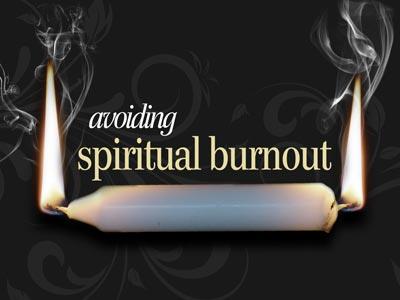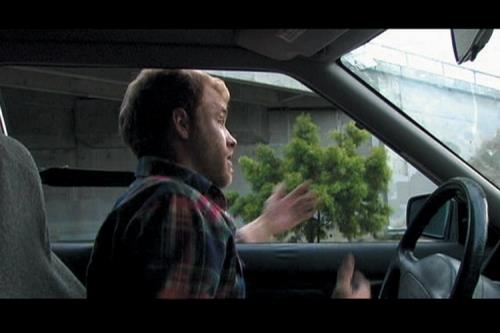-
Victory In The Valley Of Weeping
Contributed by Charles Holt on Nov 28, 2017 (message contributor)
Summary: Based upon Psalm 84:5-7 this message seeks to encourage all who are passing through a "valley of tears," i.e., a place of sorrow, discouragement, mental and emotional loss. It’s focus is upon HOPE and HELP.
VICTORY IN THE VALLEY OF TEARS
Psalm 84:5-7
Introduction:
In 1838 and 1839, as part of President Andrew Jackson’s Indian removal policy, the Cherokee nation was forced to give up its lands east of the Mississippi River and to migrate to an area in present-day Oklahoma. They were driven from their homes, herded into internment camps, and moved by force to this new and strange land.
The Cherokee people called this journey the “Trail of Tears,” because of its devastating effects. They faced hunger, disease, and exhaustion on the forced march. Over 4,000 out of 15,000 of the Cherokees died.
Davy Crockett, a Tennessee Congressman at the time, opposed this Indian removal policy, and his disapproval ultimately played a critical role that destroyed his political career. He left Washington D.C., and came to Texas. We know the end of that story.
Unfortunately we are still living in a world that is politically and socially as out of joint as it was when the Cherokee peoples were uprooted to begin their “Trail of Tears.” In our world of turmoil and terror the Trail of Tears scene continues to be lived out as refugees stream out of their homes, villages and cities, uprooted and displaced often with only the clothes on their backs. You can hardly see a newscast that is absent of the shrieks, moans and tears of men, women, and children either in the lands of Israel or the Palestinians to say nothing about Iraq. Our memories are seared with the fire, smoke and deaths of 9/11.
As a gospel song says, “Into every life some rain must fall.” Sometimes it rains gently, and at other times it is a deluge. But one thing is common to us all. Into each of our lives comes the rain, sometimes gentle and sometimes like a flood.
In some way, at some time in the past, or perhaps even in this present time we have known to a degree what it is to walk our own personal Trail of Tears. It is not on the scale of the suffering of the members of the Cherokee Nation of 1838 and 1839 but we have, nonetheless, experienced the tears.
Because tears are so universal so, “no respecter of persons,” you would be right if you guessed that the Bible has much to say about tears. If one researched the Authorized King James Version one will find that the word TEARS is mentioned 35 times. The word WEPT can be found 68 times. I choose only a few examples.
1. Job said: “My friends scorn me: but mine eye poureth out tears unto God.”
2. David said: “I am weary with my groaning; all the night make I my bed to swim; I water my couch with my tears.”
3. Later he says, “My tears have been my meat day and night, while they continually say unto me, Where is thy God?”
4. And the blessed promise, “They that sow in tears shall reap in joy.”
5. But blessed of all promises, from Revelation 21:4: “And God shall wipe away all tears from their eyes.”
Yes, a day is coming when God will do exactly as promised. He will “wipe away all tears” from our eyes. But that is sometime in the future. It is not today. Today, we will shed our tears. Today, we will wipe our tears. And there is nothing wrong with that. We all do it.
As I have said earlier, the journey taken by the Cherokee over 150 years ago is known as the Trail of Tears. But a direct translation from the Cherokee language is, “The Trail Where They Cried.” We all know what it is to walk that trail. Some may be walking it right now.
Our Biblical connection is found in Psalm 84:6: “Who passing through the valley of Baca make it a well; the rain also filleth the pools. (KJV).
BACA is the English rendering the Hebrew word BAW-KAW’ for “weep” or “weeping.” Here it is called the “valley of weeping.”
Psalm 84 is about a group of people who are on a journey. They are on their way up to Jerusalem to the place where the Tabernacle resided; the Tabernacle that held the Ark of the Covenant and the manifest presence of God. It was a place of worship. It was a place of finding forgiveness and cleansing. It was a place of joy and happiness. It was a place of fellowship with friends. It was a happy time, a time of celebration. It was the place that God had commanded for all males in Israel to come three times a year to celebrate.
On their way to Jerusalem these pilgrims must travel through a very dry and desolate place. This dry and desolate place called the Valley of Weeping. It is called Valley of Weeping because it was so hard and difficult to go through. It was not an easy road to walk on. It was indeed “The Trail Where They Cried.”

 Sermon Central
Sermon Central



